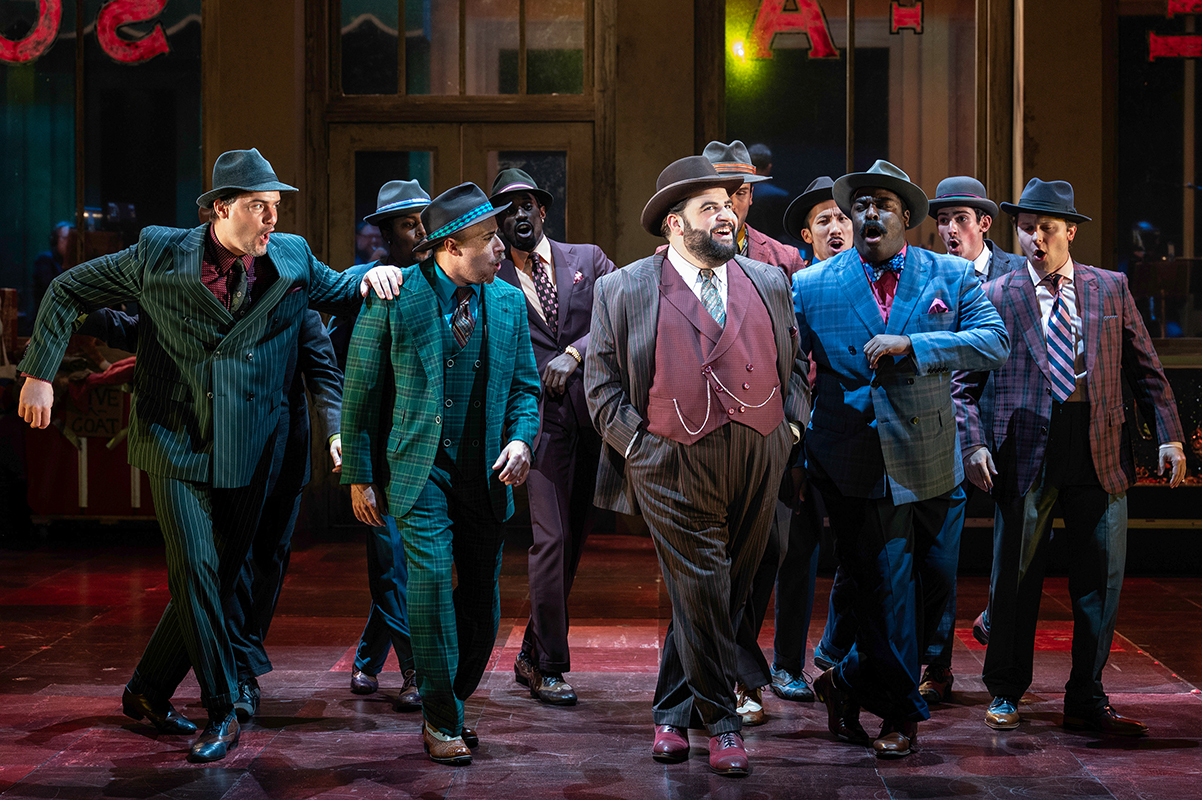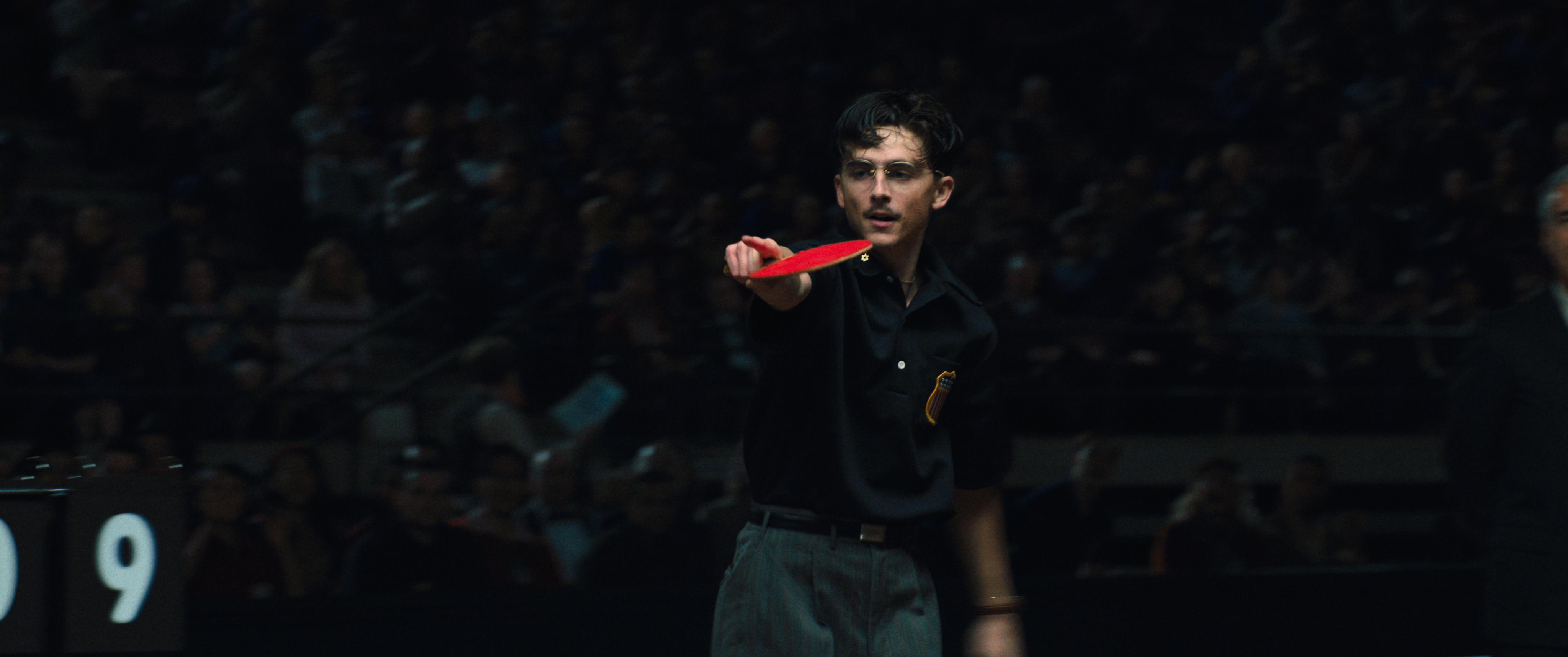Jay Kelly Review: Capturing the Unreality of Fame
Noah Baumbach's wistful Hollywood satire "Jay Kelly" questions the price of success in the motion picture industry.

About halfway through Jay Kelly, Noah Baumbach directs a love scene. I don’t mean that there is a sex scene (those rarely appear in Baumbach’s cinematic universe, except the mortifyingly awkward kind). I mean that Baumbach himself appears onscreen, in a wink-nod cameo, as a fictitious filmmaker, choreographing an intimate scene between our hero, Jay Kelly (played in flashback by Charlie Rowe), and an actress playing his wife (Eve Hewson), who becomes his real-life paramour, though not real real-life, but — ah, who’s to say what’s real anyway?
Baumbach has never been the sort of director to place himself onscreen, but the indulgence fits with a certain metatextual thread in Jay Kelly, a wry Hollywood satire and wistful character study infused with the director’s signature familial discord. Here is a film about making sense of your life when, as Jay puts it, “all my memories are movies”; a film about sifting through the thin thread that separates public persona and private identity. How much of your life is real when millions of people know and adore you for playing someone else? And what about the real family you neglected to pursue those celluloid dreams — is it too late to make amends?
Jay Kelly, you see, is a beloved, world-famous movie star. Perhaps the world-famous movie star. As his loyal manager, Ron (Adam Sandler), reminds him in a moment of crisis: “You’re the American dream. You’re the last of the old movie stars!” And Jay Kelly is played, in present-day, by the last of the old movie stars: George Clooney. He’s not playing himself, exactly, but you get the sense that Clooney doesn’t have to strain to imagine what it’s like to lose your anonymity — to get thronged by selfie requests and displays of adoration every time he enters a public space.
The film, which Baumbach co-wrote with the actress Emily Mortimer, finds Jay navigating the loneliness of life at the top. Never the family-man type, he has two grown daughters who’ve become accustomed to his absence from their lives. He’s unnerved to learn that his younger daughter, Daisy (Grace Edwards), is jetting off to Europe with friends before starting college in the fall. He thought they’d finally have some time together that summer. “It’ll be so lonely here without you,” he protests. “You’re never alone,” Daisy shoots back, as an assistant hands Jay a beverage.
Meanwhile, Jay learns that his mentor, Peter Schneider (Jim Broadbent), an acclaimed filmmaker who 35 years earlier gave him his big break, has died. We learn, via a warm, heartbreaking flashback, that Peter had fallen on hard times and asked Jay to attach his name to a film he was trying to get made; Jay refused.
Jay dutifully attends Peter’s funeral, where he runs into an old buddy from acting school, Timothy (Billy Crudup). Once the rising star of their cohort, Timothy is now a middle-aged child therapist full of unresolved resentments. (Why is he attending a famous director’s funeral? This is never explained.) They catch up over drinks, which includes a remarkable dramatic reading of a bar menu by Crudup, but their reunion quickly turns sour. “You kinda stole my life,” Timothy blurts out, recalling how Jay accompanied him to the audition for Peter’s film and won the part.
Their physical altercation leaves Jay with a black eye and a wounded psyche. Deeply rattled, he ditches his next movie and jets off to Europe on a whim, planning to crash Daisy’s Euro-trip and accept a retrospective award at some film festival in Tuscany. His team of handlers, led by his long-suffering manager Ron and exasperated publicist Liz (Laura Dern), reluctantly tag along, loyal to Jay but exhausted after a lifetime of tending to their star client’s impulsive whims and selfish behavior. The back half of the film follows their travels on a train from France to Italy, then in the Italian countryside, as Jay’s entourage gradually winnows one by one; eventually, only Ron is left.
At its best, Jay Kelly captures the unreality of fame. There’s a joyous, gentle surrealism to the scenes on the train, where Jay holds court like a local mayor, his effortless charisma rousing passengers out of their banal routines. Baumbach finds inventive ways to stage this sequence: a woman delighted to see Jay’s reflection in her makeup mirror, for instance, or Jay’s own daughter catching sight of the star passing through train cars while she’s making out with a new beau.
Speaking of fame, Jay Kelly arrives at an interesting moment in Baumbach’s own career. He’s richer and more famous than ever seemed possible, thanks largely to the phenomenon that was 2023’s Barbie, which Baumbach co-wrote with longtime partner Greta Gerwig. But he has also been licking his wounds after an expensive flop, 2022’s White Noise, his last work as a director and one whose protracted, nightmarish shoot nearly broke him. The dazzling and disorienting Don DeLillo adaptation had its admirers (I remain one of them), but it’s fair to say its morbid dread and caustic academic satire didn’t connect with the average Netflix viewer.
Baumbach said recently that he experienced a “quiet crisis” after White Noise failed to ignite, telling Vanity Fair that Jay Kelly was an attempt to rekindle his love of movies. This was a revealing admission. There was a time when a polarizing reception to a Noah Baumbach movie wasn’t cause for a crisis. Remember when he made misanthropic indies on $3-$10 million budgets? Did anyone panic when Margot at the Wedding left critics cold?
Then again, Margot at the Wedding didn’t have a rumored $140-million budget or a protracted, months-long shoot. Baumbach’s sensibility has softened since he began collaborating with Gerwig, and his films’ budgets and visual ambitions have grown immensely since he formed an exclusive Netflix deal following the success of 2019’s Marriage Story.
So, if the crowd-pleasing rhythms of Jay Kelly play like an obvious attempt to win back an audience alienated by White Noise, that’s okay. Baumbach takes some of that film’s lavish visual pizazz — don’t miss the dazzlingly choreographed opening shot, winding its way through a low-lit soundstage as Jay’s handlers kvetch and pamper him — and manages to deploy it in a lighter tone. Another formalist conceit finds Jay’s present self watching the flashbacks that weave through the film in Fellini-like fashion.
Besides, Clooney is magnetic in the title role. He’ll surely be accused of playing himself, because Jay Kelly’s understated charisma looks a lot like George Clooney’s understated charisma, but his performance conveys a certain loneliness that lurks just beneath that unruffled charm. Plus, as Jay says in the film, playing yourself is often the “hardest role any of us can play.”

I found Sandler and Dern a touch less convincing. Sandler is in full-on mensch mode here; he calls Jay “Puppy” and always sees the best in his client, but there’s not quite enough turmoil in his performance — or the film — to convince us that he would walk away from that seemingly lucrative partnership. Still, it’s a quiet, soulful performance that could bring Sandler the Oscar nod he deserved for The Meyerowitz Stories. Dern, meanwhile, gets little to do but look exasperated. A sideplot involving her character’s long-ago romance with Sandler’s feels silly and undercooked.
Elsewhere, Jay Kelly feels like a reunion party for Baumbach’s repertory crew. Gerwig appears intermittently as Ron’s overwhelmed wife, and Josh Hamilton, a longtime Baumbach pal, gets a glorified cameo as a weepy therapist who meets with Jay and his older daughter, Jessica (Riley Keough). Only Adam Driver is conspicuously absent.
It’s not a critic’s job to psychoanalyze Baumbach, but you can’t help but notice that his films tend to circle back to narcissistic fathers eventually. The filmmaker will not rest until he has cast every beloved male movie star over 50 as a disappointing dad. There was Jeff Daniels as the condescending novelist (loosely based on Baumbach’s own father) in The Squid and the Whale, then Dustin Hoffman as the resentful, domineering patriarch in The Meyerowitz Stories.
Jay Kelly mines similar territory, as Jay’s daughters grapple with the pain of having a father who’s beloved by the world but unavailable to his children. What’s changed is that Baumbach is now a father in his fifties. Since Marriage Story, his perspective has shifted, his portraits of divorced parents softer and more forgiving. Here, Clooney is surprisingly sympathetic as a long-absent father trying to make up for lost time. As the film moves towards a bittersweet finale, swathed in fatherly wistfulness, the possibility of reconciliation lurks just out of frame.
Jay Kelly (★★★☆☆) is Rated R and is now playing in theaters nationwide. It will stream on Netflix starting Dec. 5. Visit netflix.com.
Support Metro Weekly’s Journalism
These are challenging times for news organizations. And yet it’s crucial we stay active and provide vital resources and information to both our local readers and the world. So won’t you please take a moment and consider supporting Metro Weekly with a membership? For as little as $5 a month, you can help ensure Metro Weekly magazine and MetroWeekly.com remain free, viable resources as we provide the best, most diverse, culturally-resonant LGBTQ coverage in both the D.C. region and around the world. Memberships come with exclusive perks and discounts, your own personal digital delivery of each week’s magazine (and an archive), access to our Member's Lounge when it launches this fall, and exclusive members-only items like Metro Weekly Membership Mugs and Tote Bags! Check out all our membership levels here and please join us today!




























You must be logged in to post a comment.